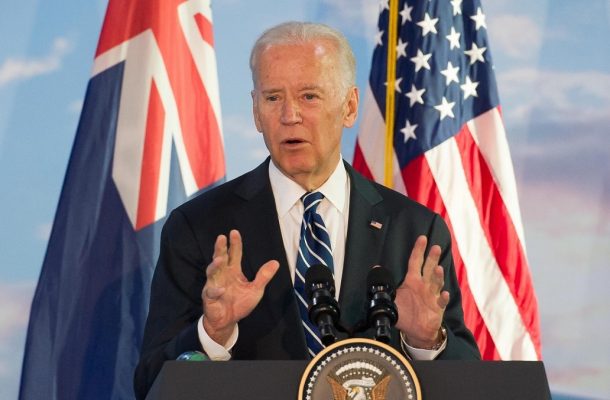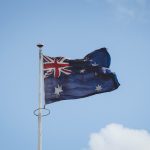The future of the ANZUS alliance

In 2021, the ANZUS alliance will have been in place for 70 years. However, in the wake of Biden’s recent inauguration as the 46th president of the United States, the alliance is experiencing challenges not seen in the past.
In response, Australia’s role now is not to watch what the new Biden administration policy will do, but rather craft a pragmatic and proactive approach to its alliance management for the challenges of a new era. While the election of Joe Biden and Kamala Harris will lead to a sense of a return to “normalcy” in US foreign policy, the new administration will face an abundance of challenges. After enduring “one of the worst, if not the worst ever” president, the task ahead is enormous.
Although Biden has taken the oath of office, this act does nothing yet address major US international strategic issues. Indeed, many, such as COVID-19, became more acute between the election and the inauguration.
Meanwhile the global order continues to be under threat, and the cost of rebuilding US international influence, which radically declined under Trump, may well be too high given domestic pressures. US trade policy is a mess, and action on climate change reached a nadir in the Trump administration.
The People’s Republic of China (PRC) became even more emboldened during 2020. Locally, its sights seemed set on trying to punish Australia for its liberal internationalism, in part taking advantage of the remaining weeks of an anti-alliance US president. But the message here is much broader than bilateral strains in the Australia-China relationship.
Australia is being made an example of. The message from the PRC to every small and middle power in the Indo-Pacific region is clear: don’t be like Australia and defend your sovereignty and the international order. China is making it clear that countries in the Indo-Pacific should not put their head above the parapet and lead on any issue perceived not to be in the PRC’s interest.
Meanwhile in the US, post-election attention has been divided by the unparalleled events in Washington DC, including the impeachment of Trump (again), as well as announcements and speculation as to what we will get from the new US administration now it has taken office.
We have already seen a return to competent public officials, with the announcements of Antony Blinken, Linda Thomas-Greenfield, and Jake Sullivan to key positions in the Biden White House. For a while the focus seemed overwhelmingly on those with European and Middle East expertise, but the announcement of Kurt Campbell as head of a new National Security Council position to oversee the Indo-Pacific has helped balance the ledger in key foreign policy appointments.
Australia, through a combination of luck, bilateral trade deficits which favour the US, and some good management, has arguably weathered the Trump presidency better than any other US treaty ally. However, the Trump legacy has been a wrecking ball for the US-led rules-based international order on which Australia’s foreign and security policy has been centred since 1945. There has been some criticism that Scott Morrison was too close to Trump and that his views on climate change and his relationship with the ex-president has put Australia at risk as the new administration takes over.
More broadly, the issues Australia and the US face in the Indo-Pacific continued unabated: rising economic and strategic competition, ongoing grey-zone confrontation, political interference, cyber-attacks, the multi–vectored effects of climate change, especially in terms of the need for increased humanitarian and disaster relief interventions, as well as the ongoing global impacts of the COVID-19 pandemic.
In response, the Biden presidency, among a range of other initiatives, should be eager to focus on multilateralism and on re-engaging with the Indo-Pacific region. But for Australia, watching the US closely to see what the Biden administration will or will not do is not enough.
What Australia needs to do is decide what it wants from the US-Australia strategic relationship. The Australian prime minister’s political tactics may have worked well when targeting domestic audiences, but they have achieved little traction in international affairs. Post-Trump, Scott Morrison’s tactics of being decidedly absent on key issues such has climate change, flattering a president with destructive and authoritarian instincts, and generally of keeping his head down will no longer cut it.
Beyond leadership issues, Australian policy also risks being left adrift. The platitudes of previous Australian policy documents about developing a deeper relationship with the US as its main hedge against China were not enough previously, and are redundant now.
For a significant part of the Trump administration, the US-Australia partnership was personified by continued alliance sentimentalism, no more so than at 75th anniversary of the Battle of Coral Sea and Morrison’s “man of titanium” meeting with Trump in 2019. This view of the US-Australian relationship has helped to distort ANZUS, moving it away from it its key function as a means of achieving Australia’s strategic objectives.
While significant moves have been underway for almost a decade to redefine Australia’s strategic posture with the US, Australia is still yet to completely escape the confines of alliance sentimentalism. The role of the US has not been clearly redefined in Australia’s strategic policy. With Biden’s inauguration now done, the time is ripe for hard questions to be asked and new realities faced.
Australia needs to be clear-sighted about the fact the foundations of its alliance with the US are fundamentally different now than in previous decades. The US is no longer the superpower it once was, and Australia should not underestimate the challenges it faces in a post-Trump world. The clock cannot be turned back four years.
Any discussion of the future of the US-Australian strategic partnership should also be considered within the context of a broader debate about the type of region Australia wants to live in, as well as the types of relationships and strategic approach it wants to take. This conversation should also be undertaken well beyond the bounds of big business, Australia’s relations with China, and the traditional voices of Canberra policy elites, as some have recently suggested.
The ANZUS alliance has proved to be remarkably resilient. In the past, Australia has generally been less focused, in the policy world at least, on sentimentalism and directed by the tradition of pursuing pragmatism in crafting our foreign policy. It is important to note that historically, Australia has been the “Independent Ally,” even in the face of rising powers and a changing strategic order.
However, the contemporary challenges the US-Australia strategic partnership faces in the Indo-Pacific are starker that at any time in its history. Australia’s role must not be to watch what the new Biden administration policy will be, but to craft a pragmatic and proactive approach to its alliance management for the challenges of a new era.
This is critical for Australia to ensure it remains an independent ally and that ANZUS continues to play a central role in Australia’s strategic landscape. Otherwise, as Harvard professor Steve Walt argued, the “alliance may be dead long before anyone notices, and the discovery of the corpse may come at a very inconvenient time.”
This article was published by the Australian Institute of International Affairs.
Professor Peter J. Dean is the Chair in Defence Studies and Director of the Defence and Security Program at the University of Western Australia.











